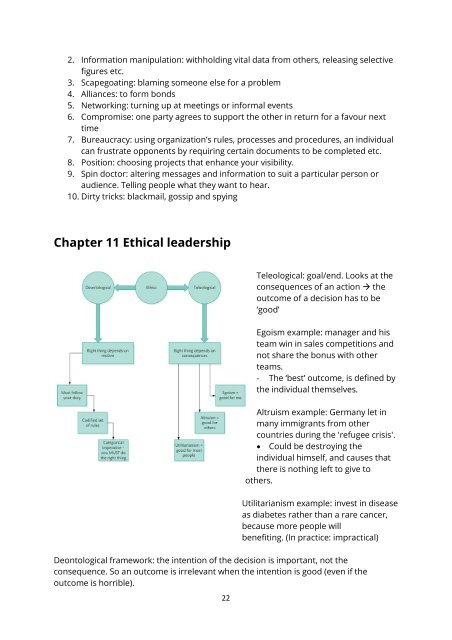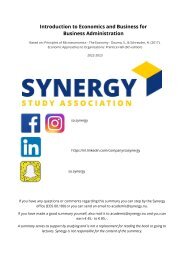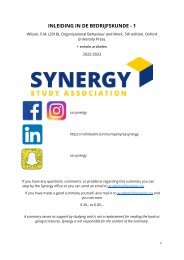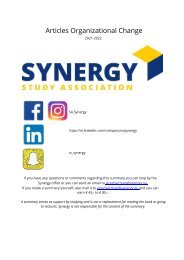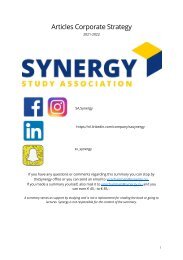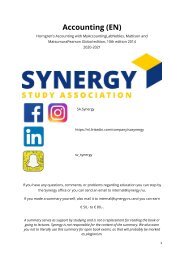Leadership in Organizations
Create successful ePaper yourself
Turn your PDF publications into a flip-book with our unique Google optimized e-Paper software.
2. Information manipulation: withhold<strong>in</strong>g vital data from others, releas<strong>in</strong>g selective<br />
figures etc.<br />
3. Scapegoat<strong>in</strong>g: blam<strong>in</strong>g someone else for a problem<br />
4. Alliances: to form bonds<br />
5. Network<strong>in</strong>g: turn<strong>in</strong>g up at meet<strong>in</strong>gs or <strong>in</strong>formal events<br />
6. Compromise: one party agrees to support the other <strong>in</strong> return for a favour next<br />
time<br />
7. Bureaucracy: us<strong>in</strong>g organization’s rules, processes and procedures, an <strong>in</strong>dividual<br />
can frustrate opponents by requir<strong>in</strong>g certa<strong>in</strong> documents to be completed etc.<br />
8. Position: choos<strong>in</strong>g projects that enhance your visibility.<br />
9. Sp<strong>in</strong> doctor: alter<strong>in</strong>g messages and <strong>in</strong>formation to suit a particular person or<br />
audience. Tell<strong>in</strong>g people what they want to hear.<br />
10. Dirty tricks: blackmail, gossip and spy<strong>in</strong>g<br />
Chapter 11 Ethical leadership<br />
22<br />
Teleological: goal/end. Looks at the<br />
consequences of an action → the<br />
outcome of a decision has to be<br />
‘good’<br />
Egoism example: manager and his<br />
team w<strong>in</strong> <strong>in</strong> sales competitions and<br />
not share the bonus with other<br />
teams.<br />
- The ‘best’ outcome, is def<strong>in</strong>ed by<br />
the <strong>in</strong>dividual themselves.<br />
Altruism example: Germany let <strong>in</strong><br />
many immigrants from other<br />
countries dur<strong>in</strong>g the 'refugee crisis'.<br />
• Could be destroy<strong>in</strong>g the<br />
<strong>in</strong>dividual himself, and causes that<br />
there is noth<strong>in</strong>g left to give to<br />
others.<br />
Utilitarianism example: <strong>in</strong>vest <strong>in</strong> disease<br />
as diabetes rather than a rare cancer,<br />
because more people will<br />
benefit<strong>in</strong>g. (In practice: impractical)<br />
Deontological framework: the <strong>in</strong>tention of the decision is important, not the<br />
consequence. So an outcome is irrelevant when the <strong>in</strong>tention is good (even if the<br />
outcome is horrible).


